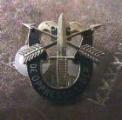pp. 26-27, 29-30 pdf
A WORLD REVOLUTION
It must be evident to you from this discussion that the objective of the Islamic ‘ Jihād’ is to eliminate the rule of an un-Islamic system and establish in its stead an Islamic system of state rule. Islam does not intend to confine this revolution to a single state or a few countries; the aim of Islam is to bring about a universal revolution. Although in the initial stages it is incumbent upon members of the party of Islam to carry out a revolution in the State system of the countries to which they belong,
but their ultimate objective is no other than to effect a world revolution.
No revolutionary ideology which champions the principles of the welfare of humanity as a whole instead of upholding national interests, can restrict its aims and objectives to the limits of a country or a nation.
The goal of such an all-embracing doctrine is naturally bound to be world revolution.
Truth cannot be confined within geographical borders. Truth demands that whatever is right on this side of the river or the mountain is also right on the other side of the river or mountain; no portion of mankind should be deprived of the Truth; wherever mankind is being subjected to repression, discrimination and exploitation, it is the duty of the righteous to go to their succour.
The same conception has been enunciated by the Holy Qur’an in the following words:
"What has happened to you? Why don’t you fight in the way of God in support of men, women and children, whom finding helpless, they have repressed; and who pray, "O God! liberate us from this habitation which is ruled by tyrants". (4: 75)
....
The Terms "Offensive" and "Defensive" are Irrelevant
If you carefully consider the explanation given above you will readily understand that the two terms ‘offensive’ and ‘defensive’ by which the nature of welfare is differentiated are not at all applicable to Islamic ‘Jihad’. These terms are relevant only in the context of wars between nations and countries, for technically the terms ‘attack’ and ‘defence’ can only be used with reference to a country or a nation. But when an international party rises with a universal faith and ideology and invites all peoples as human beings to embrace this faith and ideology and admits into its fold as equal members men of all nationalities and strives only to dismantle the rule of an opposing ideology and set up in its place a system of government based on its own ideology, then in this case the use of the technical terms like ‘offence’ and ‘defence’ is not germane.
Even if we stop thinking about these technical terms, the division of Islamic ‘Jihad’ into offensive and defensive is not admissible. Islamic Jihad is both offensive and defensive at one and the same time.
It is offensive because the Muslim Party assaults the rule of an opposing ideology and it is defensive because the Muslim Party is constrained to capture state power in order to arrest the principles of Islam in space-time forces. As a party, it has no home to defend; it upholds certain principles which it must protect.
Similarly this party does not attack the home of the opposing party,
but launches an assault on the principles of the opponent. The objective of this attack, moreover, is not to coerce the opponent to relinquish his principles
but to abolish the government which sustains these principles.








 )
)


Bookmarks